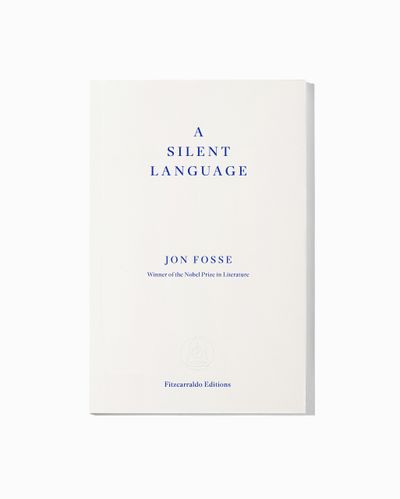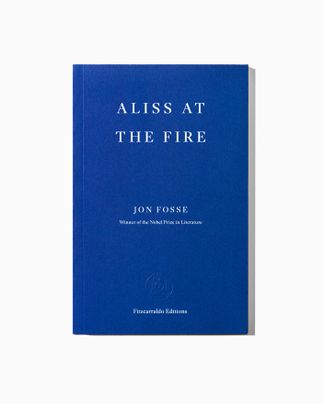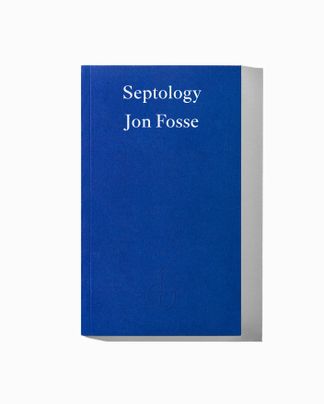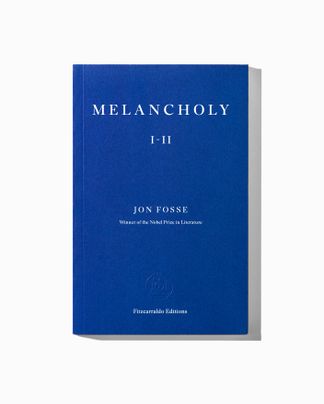‘If there’s any metaphor I would use for the act of writing, it would have to be listening,’ says Jon Fosse in A Silent Language, the lecture he delivered after being awarded the 2023 Nobel Prize in Literature. When he writes, Fosse explains, he listens for texts that exist somewhere outside of himself in order to transcribe them before they disappear. With reverence and humility, Fosse traces his relationship to writing and celebrates the capacity of language to embrace the mystery, complexity and existential uncertainty of the human experience. ‘It is only in the silence that you can hear God’s voice,’ he says, offering a key to his beloved works of drama and fiction. ‘Maybe.’

A Silent Language: The Nobel Lecture
Translated by Damion Searls and Chris Hall
French paperback with flaps, 48 pages
Published 23 May 2024
A Silent Language: The Nobel Lecture
Translated by Damion Searls and Chris Hall
It happened suddenly when I was in high school: my teacher asked me to read a passage aloud, and as if out of nowhere I felt terrified. It was completely overpowering – it was like I disappeared into the terror and nothing else was left of me. I stood up and ran out of the room.
I could feel the other students, and teacher, watching me wide-eyed as I ran out.
Afterwards, I tried to explain my strange behaviour by saying I’d needed to go to the bathroom. I could see from the faces of the people listening to this that they didn’t believe me. They must have just thought I was being weird, and even well on my way to going crazy.
A fear of public speaking stayed with me. After a while, I managed to ask my teachers to excuse me from participating, since it made me so anxious; some of them believed me and stopped asking me to read aloud, while others seemed to think I was trying to play some kind of trick on them.
This experience taught me something important about people.
And it also taught me other things.
In fact, it probably taught me the thing that’s the reason why I can sit here today and read out loud in public. Without any fear, or at least without almost any.
What had I learned?
In a way it was like my language had been taken from me, and I had to take it back, so to speak. And I couldn’t do so on other people’s terms – I had to do it on my own terms.
So I started writing my own things: short poems, little stories.
And I could feel that doing this made me feel safe – it made me feel the opposite of fear.
I had found something like a place inside me that was mine, mine alone, and from that place I could write things that were also mine alone.
Today, roughly fifty years later, I am still writing – and still from this mysterious place inside me. To tell the truth, I don’t know much about this place except for the fact that it exists.
The Norwegian poet Olav H. Hauge once wrote a poem where he compared writing poetry with being a child playing in the forest, building little shelters of leaves and twigs, and then crawling inside these shelters, lighting a candle, and sitting there feeling safe in the dark autumn evenings.
I feel like this is a good image for how I, too, experience writing. Today just as much as fifty years ago.
(…)
‘We are in the presence of rare literary greatness. It is for this greatness that the Swedish Academy has justly awarded Jon Fosse the Nobel prize.’
— Paul Binding, Times Literary Supplement
‘Jon Fosse is a major European writer.’
— Karl Ove Knausgaard, author of The Wolves of Eternity
‘The Beckett of the twenty-first century.’
— Le Monde
‘Fosse has been compared to Ibsen and to Beckett, and it is easy to see his work as Ibsen stripped down to its emotional essentials. But it is much more. For one thing, it has a fierce poetic simplicity.’
— New York Times
‘Jon Fosse has managed, like few others, to carve out a literary form of his own.’
— Nordic Council Literature Prize
‘He touches you so deeply when you read him, and when you have read one work you have to continue…. What is special with him is the closeness in his writing. It touches on the deepest feelings that you have – anxieties, insecurities, questions of life and death – such things that every human being actually confronts from the very beginning. In that sense I think he reaches very far and there is a sort of universal impact of everything that he writes. And it doesn’t matter if it is drama, poetry or prose – it has the same kind of appeal to this basic humanness.’
— Anders Olsson, Nobel committee
‘Searls is to Fosse what Anthea Bell is to W. G. Sebald, the best possible intermediary.’
— Blake Morrison, London Review of Books
Jon Fosse was born in 1959 on the west coast of Norway and is the recipient of countless prestigious prizes, both in his native Norway and abroad. Since his 1983 fiction debut, Raudt, svart [Red, Black], Fosse has written prose, poetry, essays, short stories, children’s books and over forty plays. In 2023, he was awarded the Nobel Prize in Literature ‘for his innovative plays and prose which give voice to the unsayable’.
Damion Searls is a translator from German, Norwegian, French and Dutch, and a writer in English. He has translated nine books by Jon Fosse, including the three books of Septology.
Chris Hall is a translator from Swedish. He lives in Stockholm.





